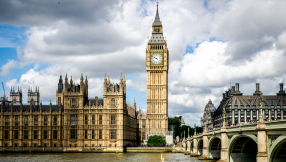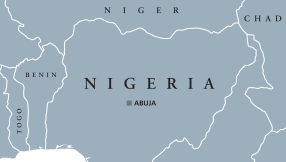African nations angered by UK's threat to cut aid budget over homosexuality
Cameron declared the British government's intention to pressure other governments to reform their policy on human rights where related to homosexuality, by threatening to cut off economic aid.
The Prime Minister has placed his focus on a number of African countries with whose governments he has raised the issue, most recently at last week's Commonwealth Head of Government Meeting in Australia.
Cameron explained that this is not just bluster, but affirmed a commitment to attach British aid to its policies.
Acknowledging Britain's capacity for assisting the world's people, Cameron argued that it is time that countries which receive such assistance start to "adhere to proper human rights".
The move to compel governments to end their ban on homosexuality meets one of the recommendations of an internal report which examines the future relevance of the Commonwealth.
"This is an issue where we are pushing for movement; we are prepared to put some money behind what we believe. But I'm afraid that you can't expect countries to change overnight," Cameron said.
In response to the prime minister's threats, Ghana's Trade and Industry Minister, Hannah Tetteh, expressed anger at what she perceived to be the British government's attempts to manage the affairs of the Ghanaian people.
"Every society has its norms and what it considers to be acceptable. In the Western world it is acceptable to have gay relationships and even move on to the next level to gay marriages; in our society it is unacceptable."
The trade minister added, "One of the things that states have the right to do is to manage its own affairs and so inasmuch as we would not tell any of the European countries how to manage their affairs. I don't think it is appropriate for them to tell us how we should deal with these issues that are a matter of our own perception of what is morally right or wrong."
Malawi Government spokesperson Patricia Kaliati stated that it was "unfortunate" for Britain to have "pro-gay strings" to aid. She described homosexual acts as being illegal in Malawi and stated that the practice of homosexuality was part of the legacy of British rule.
Ugandan Presidential Adviser John Nagenda commented that Ugandans were "tired of these lectures" and said that his people should not be treated "like children."
Nagenda accused Cameron of showing an "ex-colonial mentality" and said "Uganda is, if you remember, a sovereign state and we are tired of being given these lectures by people. If they must take their money, so be it."













